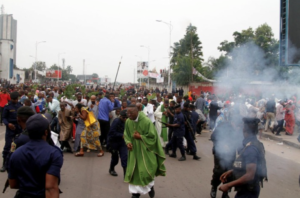That the World May Know: Baring Witness to Atrocity written by James Dawes dives deep into humanitarian aid and tells the stories of aid workers and their experiences in this sector. Dawes takes the task of standing on the outside and explaining what it is that goes on in the aid sector. As he states in the very beginning, “This book is about those who decided to do something. It is about their struggle to make sense of the things they’ve seen, the price they have paid for their commitments, and what difference – if any – they feel they have made” (Dawes 1). By “doing something” Dawes means to go and help those that are vulnerable and need it (Listoe).
In one story, it is claimed that there is a moral imperative to act. We have talked about in great length in class what the humanitarian imperative and the importance of getting involved and aiding others (SOC 376). But, how does someone know what is actually good for the victim? Dawes asks these questions which made me reflect on our class discussions and also Letters Left Unsent by J., which I had just recently read. Dawes, and J., question how we know when it is our place to go in and offer aid (J). Dawes focuses greatly on work that is done from the wealthier global North going in to “save” the poorer societies in the global south. He also explores the idea of how one then chooses to talk about it and what the results of doing so are.
How does reading this book inform or otherwise impact how you are dealing with the assignment to create a PSA video about some issue we have discussed in class?
As well as telling many stories about humanitarian aid workers, That the World May Know also impacts the reader’s perspective on how you tell these stories. Earlier in the course we were given the task to great a PSA video. My group focused on what members of the Elon Community think it means to be a global citizen. We wanted to hear their unique opinions and make the viewer of the PSA think about the question, and how they perceive what a global citizen is. After reading Dawes’ book, I believe there are some flaws in our PSA. There may be many conflicting opinions over what a global citizen is because it is a has a different meaning for everyone. Someone may not know what a global citizen is and not be able to express it. However, I don’t think it is too touchy of a subject that it would cause a lot of controversy like some of the stories and conversations that Dawes mentions. He goes into the idea in his book that telling certain stories and experiences can impact others and be traumatic. Everyone has different experiences and it is important to respect and understand that. I think that that is why many PSA’s can be difficult because they surround hard topics, and many of the issues we have discussed in class can be controversial to some. It can be challenging to know whose responsibility it is to spread these messages and which stories are worth possible consequences.
I think that it is important that stories of these tragedies and hard issues are told. Dawes reflects on how telling stories of these events keep them alive and recognized. I think that is why our PSA’s are important. Even if it may be controversial, someone has to say it, it is just important to make sure one is saying it in the right way. Dawes also talks about the media and its role in how people view humanitarian aid and different crises. The media can play a positive or a negative role in telling the stories of crises. When the public only hears about a crisis from one perspective it is what they are going to believe, so if told correctly the media can inform people and hopefully benefit those that were impacted.
Image of a riot against humanitarian aid.
References:
Dawes, James. That the World May Know: Bearing Witness to Atrocity. Harvard University Press, 2007.
J. Letters Left Unsent. Evil Genius Publishing, 2014.
Listoe, Daniel. “That the World May Know: Bearing Witness to Atrocity .” Comparative Literature Studies, Penn State University Press, 5 Mar. 2009.
SOC 376: “Being/Becoming a Global Citizen”

